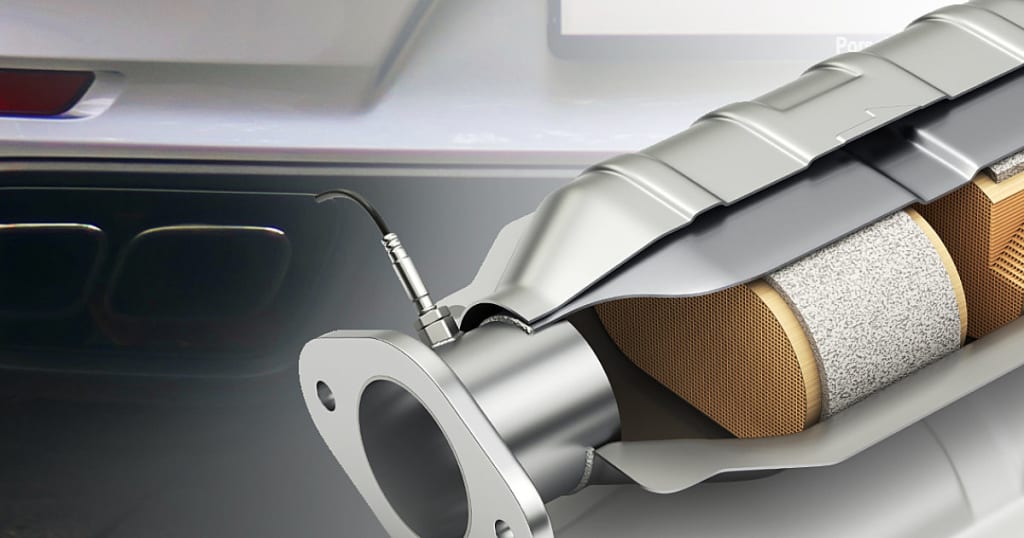The Importance Of Catalytic Converter Recycling: Why You Should Care Today
Catalytic Converter Recycling

Our world is changing, and it's more important than ever to understand how our actions can affect the planet. In this blog article, we'll look closely at why catalytic converter recycling should be top of mind for all of us who want to do our part for the environment. Discover why recycling your catalytic converters is so important, and discover how you can get involved today.
What is a Catalytic Converter?
A catalytic converter is a device that helps convert exhaust gas emissions from an internal combustion engine into less harmful substances. For a catalytic converter to work correctly, it needs to be made of materials that can withstand the high temperatures found in an engine's exhaust system. The most common type of catalytic converter contains platinum and palladium, both expensive metals. That's one reason recycling catalytic converters is so important - it helps conserve these precious resources.
Catalytic converters are required by law in many countries to help reduce air pollution. They are typically located between the engine's exhaust manifold and the muffler and can last a vehicle's lifetime if they are well-maintained. However, they can become clogged or damaged over time, leading to decreased performance and fuel economy. When this happens, it's important to replace them with new ones.
Catalytic converter recycling is important not only because it conserves valuable resources but also because it helps reduce environmental pollution. Used converters contain harmful substances like lead and cadmium, which can leach into the environment and contaminate soil and water supplies. Recycling used converters can safely remove and dispose of these toxic materials, preventing them from causing further harm.
Why Should We Recycle Catalytic Converters?
Catalytic converters are devices that help control vehicle emissions and can be recycled to reduce environmental pollution. There are many reasons why we should recycle catalytic converters:
- Catalytic converters contain precious metals like platinum, palladium, and rhodium. These metals can be recycled and used again, which reduces the need to mine for new metals
- Recycling catalytic converters help to reduce greenhouse gas emissions. Converters not correctly disposed of release harmful pollutants into the atmosphere, contributing to climate change.
- Properly recycling catalytic converters protects public health. The chemicals released from converters can cause respiratory problems and other health issues.
- Catalytic converter recycling is good for the economy. It creates jobs in the recycling industry and helps support businesses using recycled materials.
- Finally, recycling catalytic converters is simply the right thing to do. It's an easy way to reduce our impact on the environment and leave a cleaner world for future generations
The Environmental Impact of Recycling Them
Regarding environmental issues, recycling is often heralded as the solution. And while recycling is a step in the right direction, it's not always the most environmentally friendly option. This is especially true when it comes to recycling catalytic converters.
Catalytic converters are used in cars to convert harmful emissions into less toxic gases. They're made of precious metals like platinum, palladium, and rhodium and can be recycled and reused. However, recycling catalytic converters is very energy intensive and can produce harmful emissions.
Recycling your old catalytic converter may seem the right thing, but it may not be the most environmentally friendly option. If you're concerned about the environment, consider other options for disposing of your old catalytic converter.
How to Identify a Scrap Catalytic Converter
When recycling your catalytic converter, there are a few things you should know to identify a scrap converter. For starters, each converter comprises several different metals, including platinum, palladium, and rhodium. These metals can be valuable when appropriately recycled, so it's important to ensure you're working with a reputable company that can provide your converter is adequately dismantled, and the metals are separated for recycling.
In addition to the value of the metals inside a catalytic converter, the housing can also have some value. The most common type of housing is made from stainless steel, but ceramic housings are also sometimes used. If you need to figure out what kind of housing your converter has, a scrap dealer should be able to help you identify it.
Once you've identified your converter as scrap, the next step is finding a reputable car recycler. Many companies handle catalytic converter recycling, but not all of them operate in the same way. Some companies may shred the converters and sell the metal scraps as-is, while others may dismantle the converters and recycle the individual metals.
The best way to find an excellent company to recycle your scrap catalytic converter is to ask for recommendations. You can also check online reviews to see what others have said about specific companies. Once you've found a company you're comfortable with, send them your converter (usually via UPS or FedEx.
The Processes Involved in Catalytic Converter Recycling
Like most people, you probably don't think much about your catalytic converter. It's just a part of your car that helps it run better, right?
Wrong. Catalytic converters are one of the most important parts of your vehicle when it comes to reducing harmful emissions. They're so crucial that the United States Congress has mandated that all cars and trucks built after 1975 must have them installed.
But what exactly is a catalytic converter, and how does it work? A catalytic converter is a device that's installed in the exhaust system of a car or truck. It contains a ceramic or metal honeycomb coated with a catalyst, usually platinum or palladium.
When the engine runs, the catalyst helps convert harmful emissions into less toxic substances before they exit the tailpipe. This process reduces smog and other air pollution, making catalytic converters an essential part of our efforts to protect the environment.
Unfortunately, catalytic converters can be costly to replace – which is why recycling them is so important. By recycling used converters, we can recover the valuable metals they contain and reuse them in new converters. This process helps to reduce costs and also helps conserve precious natural resources.
Where to find recyclers for your old or scrap catalytic converters
If your car is more than a few years old, it has a catalytic converter. And when it comes time to get rid of your old car and scrap it for parts, you may wonder what to do with the catalytic converter.
The good news is that many recycling centers will accept your old or scrap catalytic converters. However, before you take it to a recycling center, you should know a few things.
First, not all recycling centers accept catalytic converters. So be sure to call ahead and ask if they take them. Second, the value of your catalytic converter depends on the type of metal it contains. The most valuable converters include platinum, palladium, or rhodium.
However, even if your converter does not contain one of these metals, it can still be recycled for the other metals it contains. Third, some recycling centers may charge a fee for accepting your catalytic converter. So again, be sure to call ahead and ask about any applicable fees.
Now that you know where to take your old or scrap catalytic converter, recycle it and help reduce pollution!
Tips and tricks on how to recycle catalytic converters safely and efficiently.
When it comes to recycling catalytic converters, there are a few things you need to keep in mind to do it safely and efficiently. Here are some tips and tricks:
- Always wear gloves when handling catalytic converters, as they can contain harmful chemicals.
- Make sure the converter is clean before attempting to recycle it.
- Use a certified recycling center that will properly dispose of the converter.
By following these tips, you can ensure that your catalytic converter is recycled correctly and doesn't end up in a landfill that could potentially harm the environment.
Conclusion
Catalytic converter recycling is essential to protecting our environment, saving natural resources, and preventing air pollution. By understanding the importance of responsible disposal, we can ensure that these potentially hazardous materials are handled safely and effectively. With proper recycling efforts in place, we can help protect our planet for future generations while also helping to conserve valuable resources. Awareness of this product's potential hazards and its role in reducing emissions from cars and other vehicles is essential. So if you haven't already got a catalytic converter recyclable program up and running wherever you live or work – then now might be the right time!
About the Creator
Kayla Threlkeld
Sprinkling kindness everywhere I go.






Comments
There are no comments for this story
Be the first to respond and start the conversation.